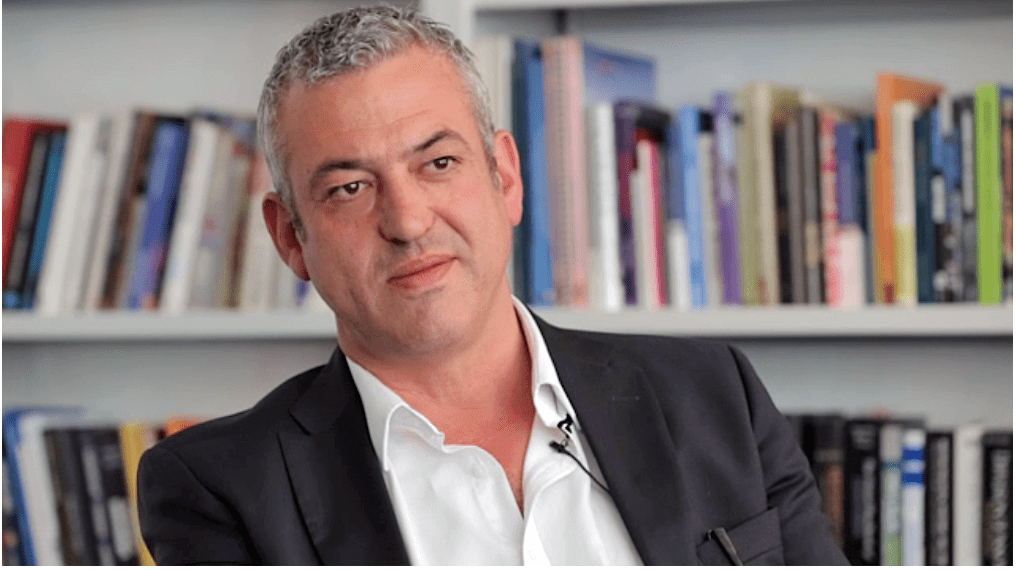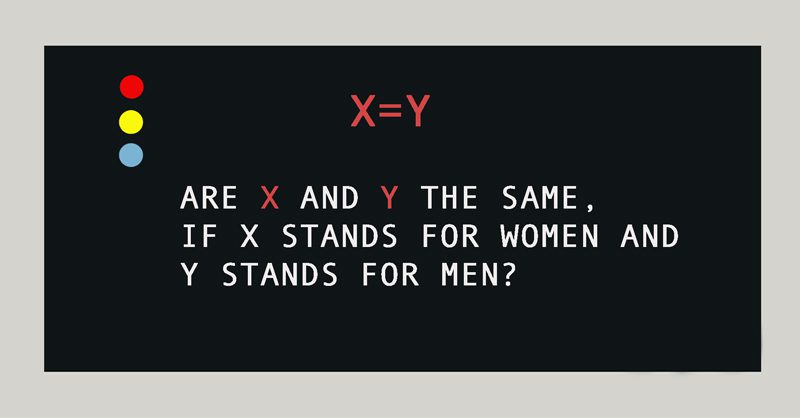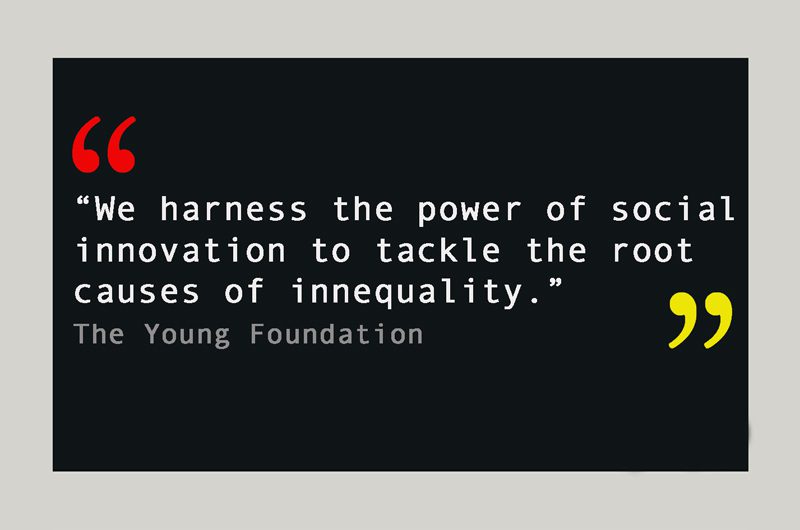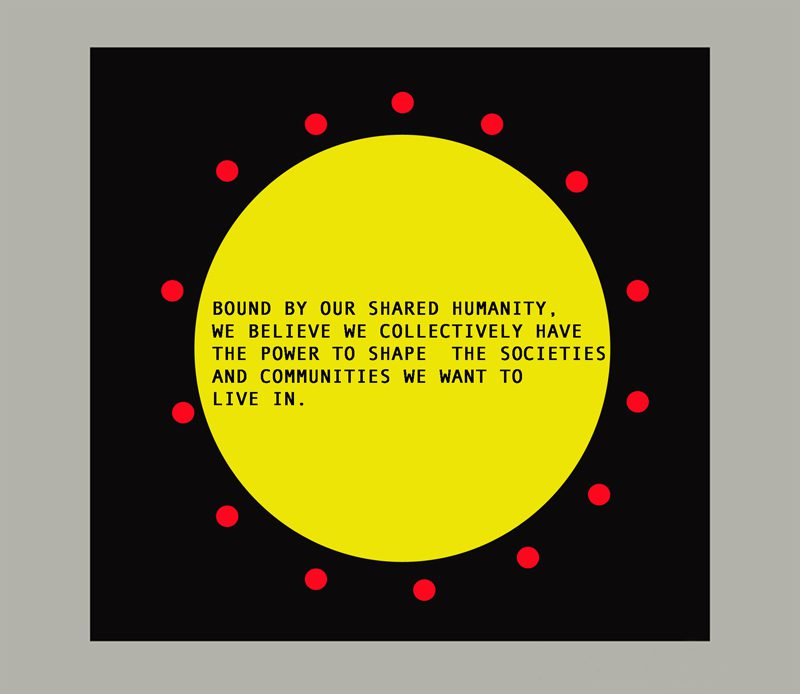
The non-mathematical aspects of inequality.
“I was in Davos a few years ago and as I passed through the security gates with Swiss soldiers holding semi-automatic weapons guarding them, and got into the inner sanctum I thought to myself ‘wow! I’ve arrived!’ Only 2,500 people are allowed into this space and I imagined we were all going to be having really interesting conversations – some of the most powerful, wealthy and interesting 2,500 people in the world! But it’s not like that at all. Inside there are areas within areas within areas and you don’t have access to all of them and everyone is desperately, gruelingly and pathetically attempting to talk to someone more important than themselves, while their target is trying to avoid them and talk to someone more important still: It’s a shark tank. And everyone’s miserable. I was talking to my brilliant friend Indy about it afterwards and I said that it’s like the people who created all the inequality in the world haven’t escaped it at all – in fact, it’s even worse at the top and they are all miserable. And he said “Yep – that’s because inequality is fractal.” It reproduces itself in ever more extreme forms and is damaging for everyone.” Simon Willis, CEO of the Young Foundation.
Inequality.
Here’s a word whose meaning we understand almost instantly. Inequality can be seen as a lack of equality; as a disparity between two parts. Inequality, simply put, as the condition of being unequal. However, as simple as its basic meaning might be, inequality is also a very complex word, issue, phenomenon. You see, inequality can be understood from many perspectives, it might be a mathematical equation, it can also be an economic matter and, most importantly, it can be seen in a social light –the view that we’re interested in.

Take a closer look: x + 3 > 2. We know from the off that there’s an element of inequality in this equation, and this is represented by the “greater than” (>) sign. Therefore, we know that x plus 3 is supposed to equal more than 2. What if we changed the variables? What if instead of random numbers we were referring to the wages of a rich person and a poor person. Would they share a relation of equality? What about if we talked about gender, perhaps? X=Y. Are x and y the same, if x stands for women and y stands for men?
Whether we choose to talk about numbers and statistics or about actual people, it’s more than clear that inequality exists everywhere. Why? Who is fighting this social problem? More importantly, what canI do – as an ordinary member of the community – to say NO to inequality? Well, first and foremost you can finish reading this article.
There are a lot of individuals with the same concerns as the ones expressed above. There are also organizations whose work is dedicated entirely to combatting inequality. One of these organizations is the Young Foundation. One of these individuals is Simon Willis. If you’re not already familiar with these two, perhaps there’s someone you should meet first:
Michael Young was a British sociologist, politician and social activist. In his book, The Rise of the Meritocracy, amongst other things, he coined the very word meritocracy which would later be used by countless politicians – something that really got on his nerves.
“Can anything be done about this more polarised meritocratic society? It would help if Mr. Blair would drop the word from his public vocabulary, or at least admit to the downside. It would help still more if he and Mr. Brown would mark their distance from the new meritocracy by increasing income taxes on the rich, and also by reviving more powerful local government as a way of involving local people and giving them a training for national politics.” said Michael Young, responsible for the Labour’s manifesto for the 1945 general election.
Young was also very important in the world of education and Simon Willis argues that he was obsessed with inequality. “Recognised as one of the world’s most creative and influential social innovators and visionaries”he was responsible for the creation of the Institute for Community Studies (ICS), the “urban studies think tank which combined academic research and practical social innovation” later became what we now know as The Young Foundation, in honour of the social entrepreneur.

So far we know that there once was a man who turned out to be the main pillar and inspiration of the organization, which is named after him, and that is fighting inequality in the present day. Thus, the Young Foundation’s mission is, without a doubt, to fight this rising social problem we’ve been analysing. What’s important to discuss now is the strategy to do so; the measures being applied; the resources available.
“We harness the power of social innovation to tackle the root causes of inequality”. You can find this written on The Young Foundation’s website, right underneath a short video of Simon Willis, its CEO, talking about the foundation and its main focuses. This is where we get to know how we can truly change the variables of the equations… So that we can make sure that Mr. Hernández’s salary is the same as Mr.Hearst’s; so that we can guarantee that Kate can have exactly the same treatment as John when applying for the same job position; so we can ensure that a small village in India has the same access to resources we have here in the western world; so we can really understand what we need to do to ensure the existence of equal opportunities.
However, the question remains: how? Unlike maths, there’s no set formula calculation we can do. We can’t simply subtract inequality. In real life there are a variety of things we can do to tackle it – and it’s not all about whose fault it is. The Young Foundation, for instance, believes that inequality can’t be simply untangled or divided. Thus, its approach is not focusing on just one kind of inequality but tackling institutional and structural disparities – in other words, the causes of inequality. So, if some choose to blame poverty on society or the poor, for example, The Young Foundation chooses, instead, to provide the people in need with the tools they need to fight it.
Still, how can this be achieved, practically speaking? Through innovation and technology, for example. According to Simon, The Young Foundation’s approaches can be very diverse. It might be with the help of social media; the implementation of a movement that calls for awareness; an alliance between public and private sectors and civil society. Regardless of the method employed, the purpose will always be the creation of “a more equal and just society, where each individual can be fulfilled in their own terms” and to “to empower people to lead happier and more meaningful lives”, as they say on their website.
It’s also important to understand that no good comes from waiting on a quantitative analysis, waiting on statistics. This will only prolong the time gap before action is taken, and it might result in a loss of perspective.“Some economists would have us believe we are all selfish, atomised, pleasure-maximisers but if you look around at how your friends and family behave day to day, that’s simply not true”, Simon explained. Numbers won’t provide a better solution than talking directly to the people in need.
For of The Young Foundation’s projects there is a specific team working on it, along with communication and design specialists. The foundation also relies on community engagement and interaction. The experts that compose those teams are from 5 fundamental nuclei: Research; Applied Innovation; Ventures; Movement Building; and Transnational.
Better By Design and Realising Ambition are two examples of Applied Innovation projects, as the foundation enables “others to innovate for large scale impact through designing programmes, coaching leaders”by working with “national governments (…), local authorities, health commissioners and providers, funding bodies, charities and many others.”
Better By Design, for example, was a project commissioned by BIG Scotland and its purpose is to “support a better and more sustainable voluntary sector across Scotland”, as those involved believe the voluntary sector plays an important role in reducing inequality. Realising Ambition, a £25 million Big Lottery Fund supported programme, which invests in projects which help children and young people avoid a life of crime and fulfil their full potential, is also an example of joint forces between different partners. The Young Foundation’s role is, mainly, allowing others to recognize and build on their strengths, helping the 21 organizations to succeed in their work towards achieving the best outcomes for children and young people and giving support and suggestions for improvement.
Another interesting aspect of the foundation’s work has to do with the hub Ventures. In this specific case, The Young Foundation supports social endeavours by giving advice and investing in these schemes. They’re also connected to possible customers and investors, which can be helpful for these projects, allowing them to grow in a sustainable and significant way.
Either way, you are welcomed to contact them, to contribute and to get involved.
Caring about being respectfully equal
So, inequality…
Inequality is more than a term that’s been coined. It’s a social matter. It exists. It exists and it has consequences. It might be a question of power, prestige, money, gender, schooling, ancestry, race or ethnicity, but it can be simply put as a society that’s divided between the “have” and “have nots”, whose effects can be felt both by the rich and the poor. Inequality is bad for people, it’s bad for the economy and it’s bad for society, which brings us back to the people once more. Imagine a world on the verge of a breakdown, where people no longer trust each other or their governments, law enforcers, police, any kind of authority. Imagine a world where you have so little trust and faith in others that every man is always out for himself. This might be an interesting movie plot but it’s also very dangerous and scary if you consider the fact that rising inequality can lead to this scenario, only this time in real life.
Some dedicate their lives to fighting against it, to dreaming of a better world. And even if a world where everyone has the same opportunities and treatment, a world where inequality does not exist, is a made up world, a utopia world, that’s a world wordy of fight right there.
“We believe little about the future of society is inevitable. Bound by our shared humanity, we believe we collectively have the power to shape the societies and communities we want to live in”
The Young Foundation.
One thing is for sure, this matter can be tackled with great creativity and diversity. Young and Simon, nonetheless, leave you with something to think about. When asked about our duties as citizens, Simon promptly answered the following:
“I’d be very hesitant to try to define what people’s duties are. I think doing something to improve society or help those in need is not so much a duty as part of the recipe for a good life. It’s not a sacrifice or a duty, it’s a privilege and a pleasure and it enriches everyone who takes part.”
Perhaps the answer is not just replacing inequality with equality; perhaps it’s as simple as caring about being respectfully equal.

The article “Inequality: Taking responsibilities” was first published at IM Magazine
Ana Teresa Silva is a journalist, writer and life coach.
After many years as a freelance journalist, working on TV documentaries and for several newspapers and magazines, she founded I’M Magazine, an international digital magazine that covers projects and extraordinary people that are changing the world.
Since 2008 she has been interviewing social entrepreneurs and innovators, futurists and change-makers, thinkers and facilitators from all over the world and sharing compelling life stories, ®evolutionary roads, projects for a sustainable future and ideas in motion…
Ana Teresa is also the Managing Director of a portuguese digital magazine on health and well-being. As a writer, she authored 6 books (one of her novels won a 1st prize fiction award), and she has also written 2 children’s theater plays and a daily TV series. Her last published novel, “Amanhã é outro dia” was published in November 2014 by Talent Hunter Editions.
She works also as a Life Coach and PsyCH-K facilitator.



























